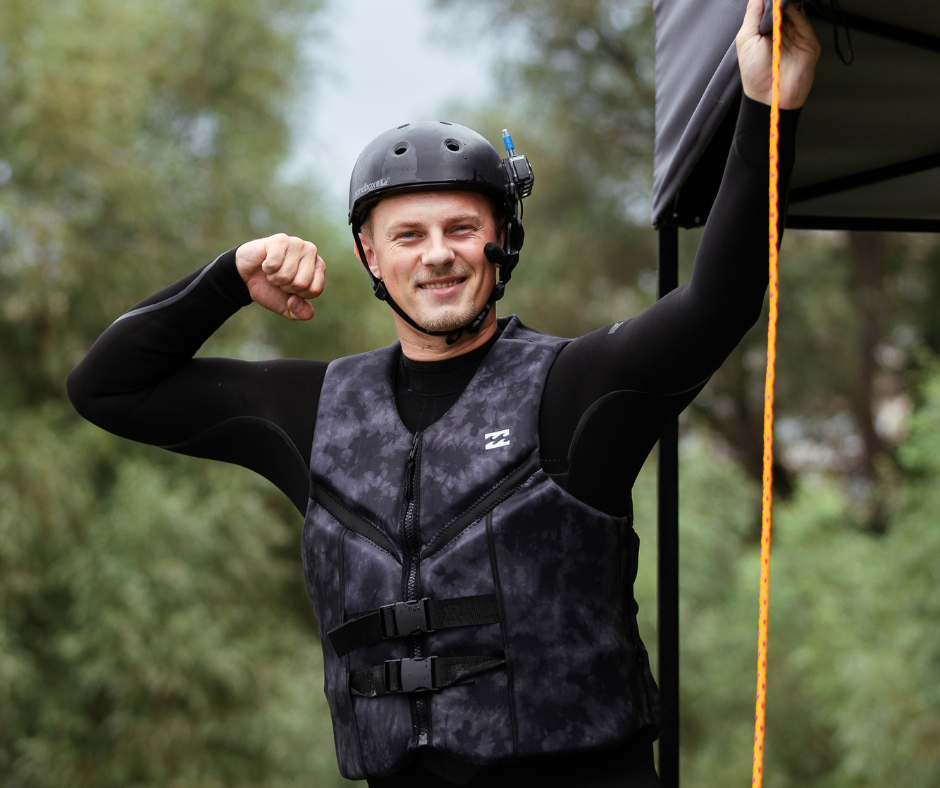Originally from Volyn, KOSTIANTYN KOPELIUK sustained an injury during an attack in Donetsk Oblast in July 2022, which led to the loss of part of his foot. He has a non-confrontational nature and believes that arguments can psychologically break a person. He is passionate about trips to the mountains and the sense of peace they bring. Before the full-scale war, he worked as a bartender.
About himself. I have a very calm personality. It’s hard to throw me off balance, but when, for example, we play team sports and a disagreement or heated moment arises, it can be challenging for me to stay quiet. I do realize, though, that these arguments are harmful—not only to the team but also to the individual involved. Such situations can even break someone psychologically. You might start overthinking, like, “Why are they blaming me? What did I do wrong? I’m just playing.” I try to stay composed—sometimes successfully, sometimes not. My wife says she’s lucky to have me, but I always tell her it’s the other way around. She’s just as calm as I am.
The only thing that can irritate me s when I’m completely exhausted, and a conflict arises in that moment. Even then, I usually prefer to avoid confrontation. It’s easier for me to step back, let things cool down, and revisit the issue later with a clear head That way, we can discuss what happened and figure out who was in the wrong. I’m not afraid to admit my mistakes or apologize when necessary.
About interests. I absolutely love mountain trips. I like the sense of inner peace I feel there. I enjoy staying in small cabins in the highland meadows, stepping outside in the morning to take in the unique atmosphere of the area. My wife got me hooked on the mountains. She loves to travel and can’t sit still. Being in the mountains feels like a reset.
I’m a trained forester, but I spent my pre-war days working as a bartender. I really enjoyed the craft, especially learning tricks with the bottles and engaging with people. Unfortunately, after my injury, I can’t return to the profession—it requires being on your feet for 14 hours straight, which is too challenging for me now.
About the army and the war. In 2019, I graduated from forestry college and was immediately drafted into the army. Between 2019 and my discharge in 2024, I experienced only nine months of civilian life—during the brief period between my conscript service and the full-scale war.
It wasn’t too difficult for me to return to the military—I was young, and I hadn’t had much time to adjust to civilian life.
When the full-scale war began, I was sent to the Kyiv region, moving through Borodianka, Makariv, and Bucha. After that, we moved to the Mykolaiv region, then to Izium, and later to Bakhmut and Soledar.
The war came with such force and speed that there wasn’t even time to think about how to process it. I went ten days at a time without being able to contact my family. You start to accept the casualties and injuries as an inevitable part of war. You have to set your mind to believe that war doesn’t exist without loss; otherwise, you can’t endure it. At that time, I didn’t think about seeking support. My squad was my support—my brothers-in-arms who stood by me. They became like family, and they were my motivation to keep going. I was also inspired by the defenders who fought in the encirclement at Azovstal, refusing to give up despite being completely surrounded.
One of my comrades was from my region. He would panic occasionally and be taken off the frontlines. Still, he helped by calling my parents to let them know I was okay.
The war is so brutal that even making a call home could cost you your life. I tried to call only during quiet moments. As soon as someone picked up, I’d quickly say I was alive and hang up. Before heading out on missions, I’d warn my family that I’d be out of contact.
One night near Izium, we were suddenly ordered to gather our gear and move out quickly. I was a machine gunner, so I grabbed my equipment, my machine gun, and ammunition but didn’t have time to send a message. I turned off my phone. For the next 11 days, I was unreachable. We were in the Izium forest, where there was no signal at all.
But there was a strange thrill to being there. On the first day, we stumbled upon a group of enemies. It was May 1st—one of the Russians’ favorite holidays. They had driven into the forest in civilian cars to have a barbecue. We lost one soldier that day, but they lost at least three, with two more wounded.
The forest was so dense that the Russians had set up motion sensors between the trees. When someone passed by, the sensors would alert them, triggering a fight. I came up with the idea to cover one of the sensors with cigarette pack foil to block the signal. That’s how we moved undetected.
Unfortunately, another of our groups, moving to assist us, triggered one of those sensors. Around five of our guys lost their lives that day.
I don’t believe in destiny or fate, but I do believe in one thing: if God decides to turn the page with your name on it, then something will happen. You’ll never know when He’ll turn that page.
About the injury. It happened on August 1, 2022. I was just resting when the artillery shelling started. I thought to myself, “If the shelling has started, the bastards won’t come near.” I heard the explosion and felt itching in my leg. When I checked, I realized my leg had been injured, so I applied a tourniquet. With the help of adrenaline, I managed to get to the observation post and asked for evacuation.
The first evacuation vehicle broke down, but after a quick fix, we were on the move. But on the way, we were hit by cluster bombs, and the vehicle stalled completely. But another vehicle arrived, and I was transferred to it. It took about an hour from the time of the injury to evacuation.
I knew right away that amputation would be necessary due to the extent of the damage. I told myself, “Why regret? What’s done is done. I knew the risks.” On the first day of the full-scale war, I told myself, “If this is not my war, then it’s not my country.” I didn’t want to live a meaningless life. And I understood that in war, you either come back wounded or dead.
About the impact of the war. At first, I felt that participating in combat affected me. I was nervous, could speak sharply or loudly, didn’t sleep at night because of worries and flashbacks. People told me that when I fell asleep, I would say in my sleep: “Don’t go there, don’t go there.”
I worked with a psychologist who also had combat experience. He helped me cope with this nervous state. He simply listened and understood what I was saying.
The best therapy for me is sports. Table tennis, where you have to concentrate on the ball, and team sports. I love those activities. I used to play beach volleyball, so I decided to try sitting volleyball. And when I saw wheelchair basketball during the selection, I knew I would try it one day. It’s like a part of me. Even when I was sitting in the stands just watching the game, I understood that my soul was with them. I felt all of it.
I also discovered river rafting, which has become another passion of mine.
About accepting the injury. I focused on staying positive and assuring myself that things would get better. My wife played a crucial role in this by providing support, guiding me, and creating an environment where I could feel comfortable. At home, there was a sanctuary of kindness and peace. My family, as well as my brothers-in-arms who stayed on the front lines, supported me. They would say, “We know you won’t be returning to the front, but we still need support from behind the lines.” What also helped was that I almost immediately got a prosthetic and started training for table tennis. I returned from the U.S. after getting fitted with a prosthetic in January, and by the end of the holidays, I was already back to playing tennis.
I had been playing table tennis even before the warIn 2019, if I hadn’t joined the military, I would have likely become a candidate for Master of Sports. I really enjoyed training, especially because my coach, who brought me into the sport, is a former military serviceman and a participant in the ATO and OOS. Being in a veteran community gave me a sense of understanding and belonging.
After the Invictus Games, I want to continue developing my skills in table tennis. A veteran’s space is set to open in Kovel, and I want to be involved in helping other veterans there. I simply want to keep living.
Translated by Green Forest English School

